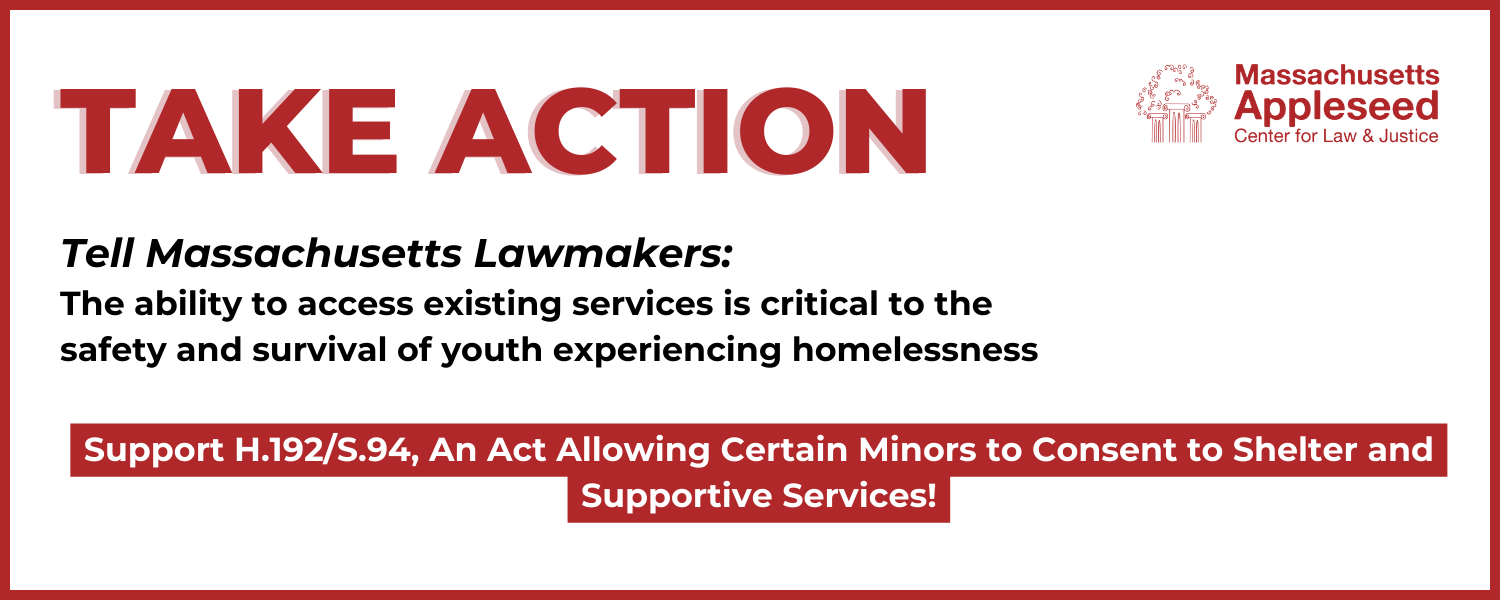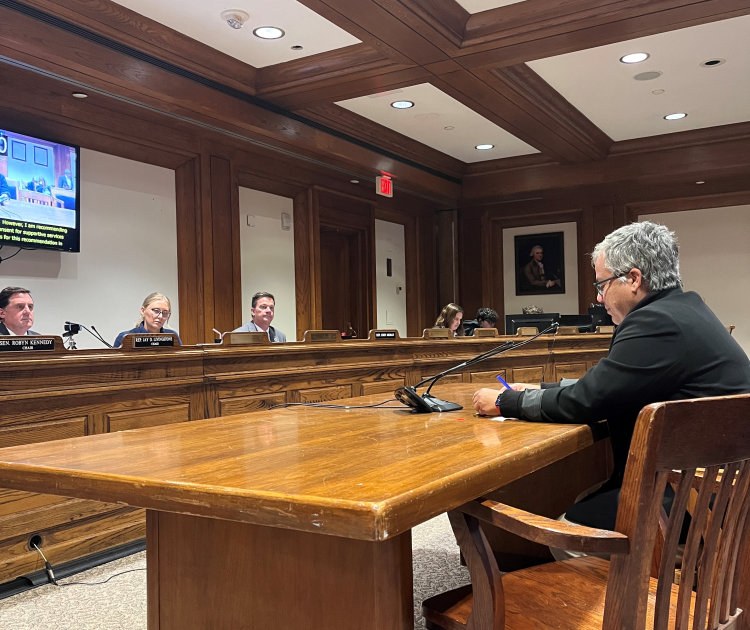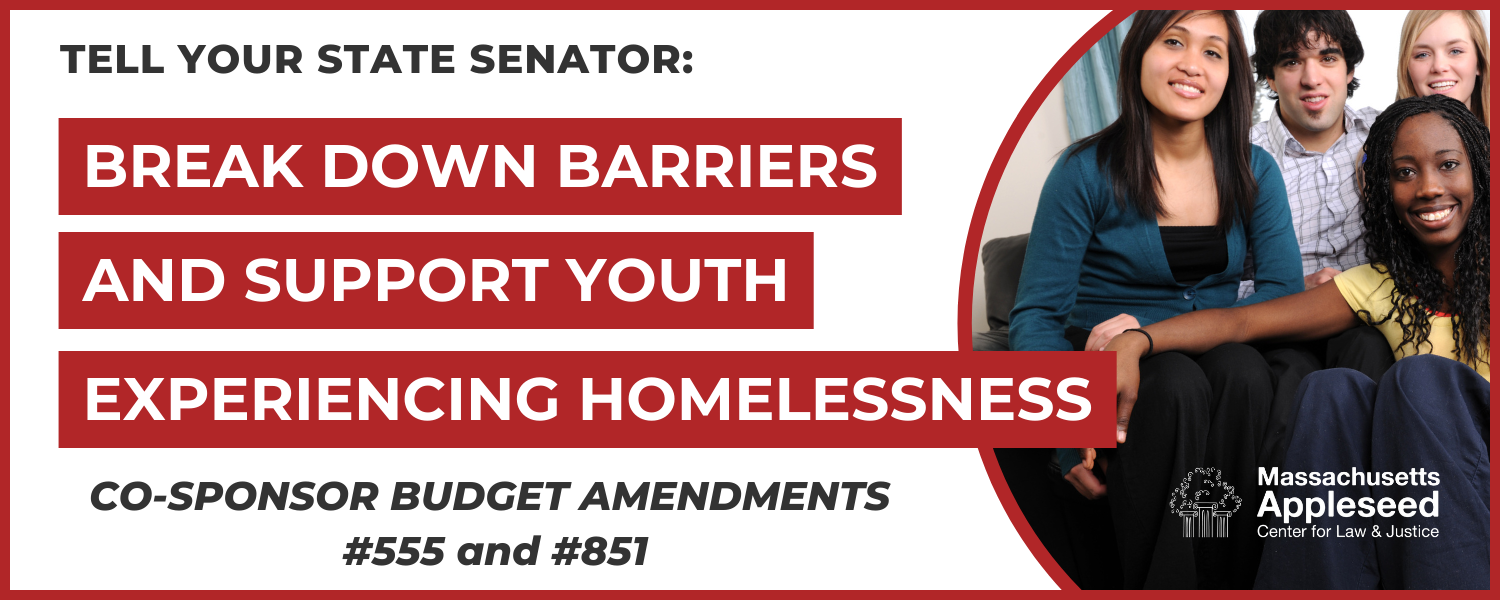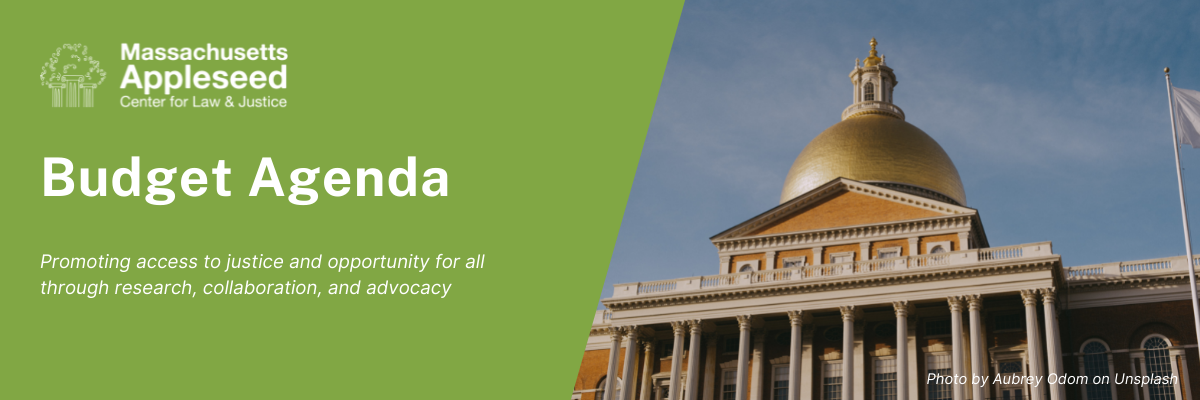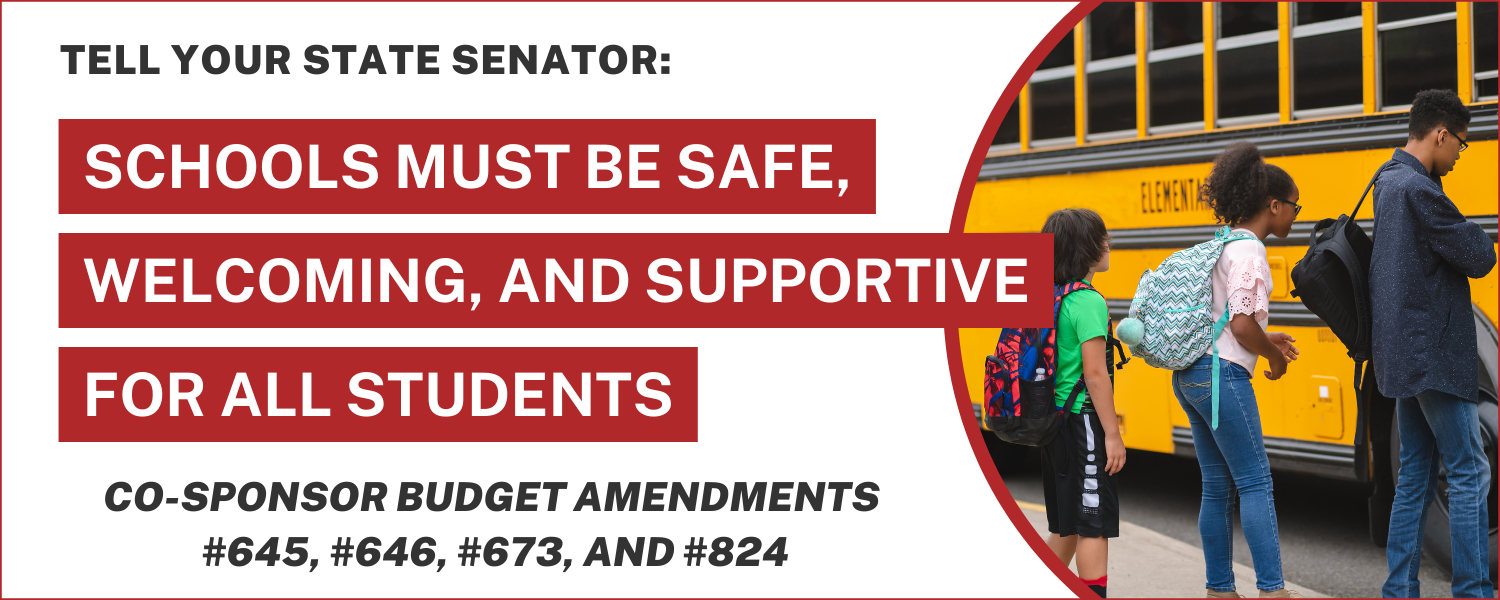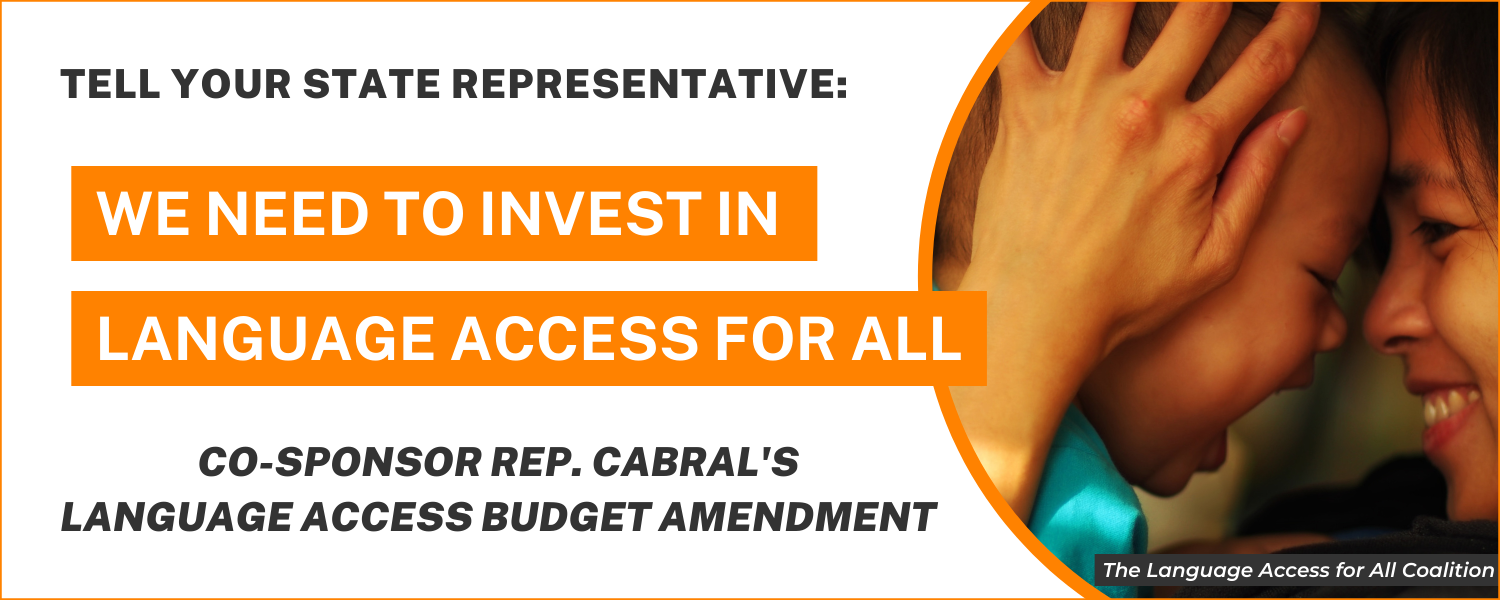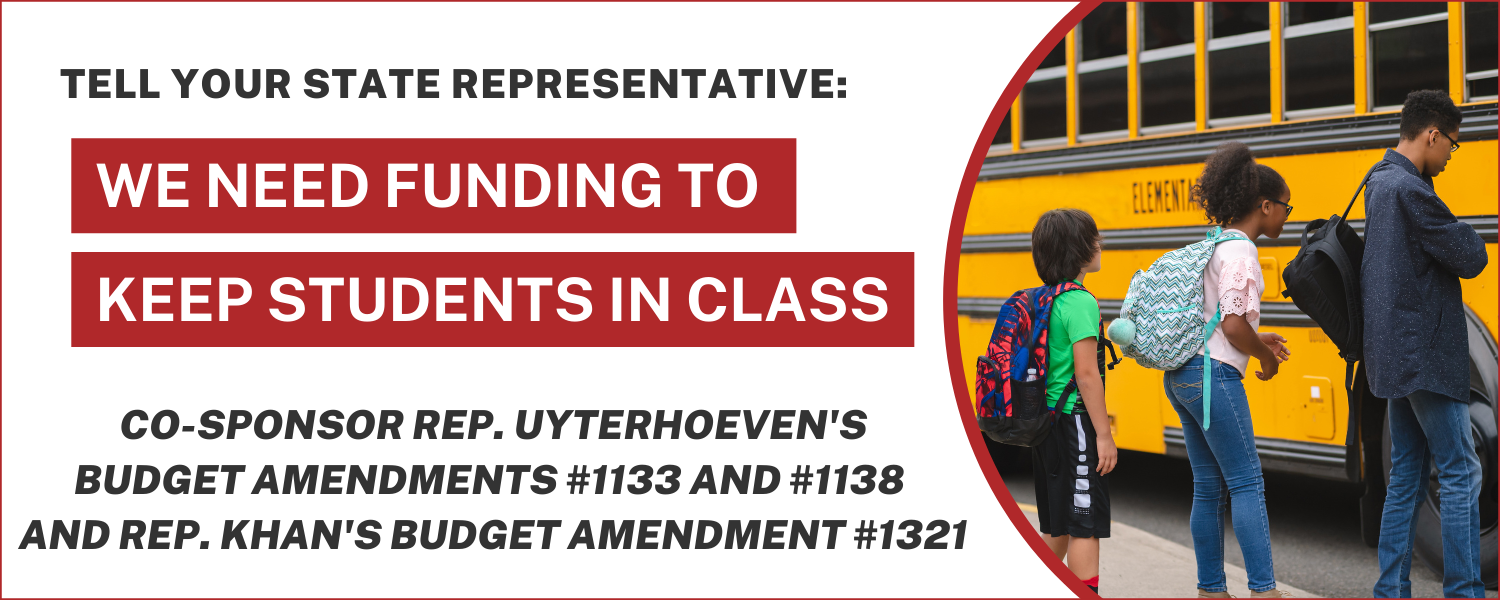Liberty Mutual Media Contact:
Molly Stern
Molly.Stern@libertymutual.com
617-470-4898
MA Appleseed Media Contact:
Madeline Poage
madeline@massappleseed.org
617-482-8686
FOR IMMEDIATE RELEASE
March 7, 2023
Boston, March 7, 2023 – Massachusetts Appleseed Center for Law and Justice, a Boston-based research and advocacy nonprofit, announced that it has received a $50,000 grant from Liberty Mutual Foundation to expand MA Appleseed’s project providing access to justice for youth experiencing homelessness. The Foundation also provided a $5,000 supplemental operating grant to reflect the impact of inflation on the economy.
“Liberty Mutual Foundation is a leader in the work to prevent and end youth homelessness and we are so grateful for this investment in our initiative to build a more robust legal safety net for young people experiencing homelessness,” said Deborah Silva, Executive Director of MA Appleseed. “Liberty Mutual’s partnership will allow us to help break down the barriers that trap young people in crisis and give them the tools they need to stay safe and housed for good. The generous supplemental operating grant further demonstrates Liberty Mutual’s understanding of our shared challenges as rising costs have forced nonprofits to do more with less.”
State data and reports from frontline service providers paint a clear picture of the way legal problems regularly intersect with a young person’s life and can impede their efforts to meet basic needs. A common barrier points to the inability for unaccompanied youth to easily obtain a state ID, which they need to access housing, employment, public benefits and more. Similarly, young people aging out of foster care lack traditional support systems and as many as 40 percent of former foster youth will experience homelessness, often because they are not aware of their legal rights.
MA Appleseed took a step towards addressing this problem in 2021 when the organization published the Massachusetts Homeless Youth Handbook, a state-specific resource guide for youth experiencing homelessness. The handbook includes 20 chapters on common legal questions to help young people understand their rights and responsibilities as well as direct them to support systems across the state. Under the guidance of Liberty Mutual’s pro bono program, 29 members of their legal team donated a total of 460 hours to draft chapters of the Massachusetts handbook. The resource was also developed in partnership with law firm Baker McKenzie, attorneys from Boston Scientific, community experts, and youth with lived experience.
“Housing insecurity is a complex social justice issue that can disrupt every aspect of life,” said Melissa MacDonnell, President of Liberty Mutual Foundation. “For youth still trying to figure out how to transition into adulthood, it can be a devastating setback. Liberty Mutual is proud to partner with Massachusetts Appleseed Center for Law and Justice to help young people navigate challenging times – so they can build the sustainable and promising future they deserve.”
Youth homelessness is a signature program within Liberty Mutual’s corporate giving strategy, committing over $24 million to youth homelessness efforts since 2018. The company has partnered with organizations that have helped more than 3,800 young people exit to stable housing and nearly 1,200 young people find transitional housing.
This grant will help fund the expansion of MA Appleseed’s Legal Education, Advocacy, and Protections (LEAP) Project for Youth Experiencing Homelessness, enabling the organization to reach more young people directly and raise greater awareness of the Homeless Youth Handbook, increase educational programming around this know-your-rights guide, and ensure staff can keep it up to date as laws change and new resources become available. In addition, the organization plans to use the Handbook as a foundational tool to create a legal network of pro bono attorneys available to dedicate their time and expertise to youth experiencing homelessness and housing insecurity.
About Massachusetts Appleseed Center for Law and Justice
MA Appleseed is driven by a mission to promote equal rights and opportunities for Massachusetts residents by developing and advocating for systemic solutions to social justice issues. Through policy analysis and research, coalition building, education and training, community organizing, and advocacy, the nonprofit seeks systems-level change so all Massachusetts families and youth can exercise their legal rights, build pathways out of poverty and crisis, and thrive. Responding to emerging and enduring inequities, MA Appleseed addresses an array of complex issues including self-representation in the civil justice system, language access for immigrant families, the school-to-prison pipeline, and youth homelessness. To explore recent research, find resources, sign up for opportunities to take action, or donate, please visit massappleseed.org.
About Liberty Mutual Insurance
At Liberty Mutual, we believe progress happens when people feel secure. By providing protection for the unexpected and delivering it with care, we help people and businesses embrace today and confidently pursue tomorrow.
In business since 1912, and headquartered in Boston, today we are the sixth largest global property and casualty insurer based on 2020 gross written premium. We also rank 78 on the Fortune 100 list of largest corporations in the US based on 2021 revenue. As of December 31, 2022, we had $50 billion in annual consolidated revenue.
We employ over 50,000 people in 29 countries and economies around the world. We offer a wide range of insurance products and services, including personal automobile, homeowners, specialty lines, reinsurance, commercial multiple-peril, workers compensation, commercial automobile, general liability, surety, and commercial property.
For more information, visit www.libertymutualinsurance.com.
Want to stay informed on the latest issues Massachusetts Appleseed is working on?
Sign up for our mailing list.







